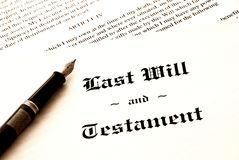One of the most important issues for the buying party to consider when planning to purchase a property in Spain, is to foresee the costs they will face in addition to the applicable taxes on the transaction. In this article we will clarify the costs involved, the parties liable for payment, and to whom and when payment should be made.

Purchase/sale fees
Real Estate Agency. The real estate agency fees should be settled by the party that contracts their services, usually the selling party, and payment should be made when the sale takes place. The amount is not regulated by law, but in practice it tends to vary between 3% and 5% of the total value of the sale price.
Notary. The Notary fees are established by Law and can vary between 0.5% and 1% of the sale price specified in the public deeds. Regarding who is responsible for payment, the Law stipulates that , if nothing is agreed in the private purchase contract, the selling party will pay for the major part of the deeds (the master copy or original), while the buying party will pay for the remaining part, being the copies.
Land Registry. Land registry fees, like Notary fees, are regulated by Law and vary according to the value of the property. The buying party is responsible for payment. A very important aspect to be taken into account is the registry of the mortgage (if there is one involved). As we already mentioned in a previous article, the Spanish Supreme Court ruling (ST 705/2015 of 23rd of December) declared to be unfair the clauses in mortgage contracts that impose on the borrower (or purchasing party), payment of all expenses, amongst which are those of the Land registry fees.
Solicitor. The expenses corresponding to contracting a solicitor for Conveyencing services are calculated by applying a percentage on the final purchase price (between 1% and 1.5%) together with an additional minimum service fees of €1,500. As always we recommend that when contracting a solicitor for your purchasing process, you choose one from the area where the property is located, specialised in Property Law and duly registered and recognised by the Illustrious Bar Association.
Mortgage Expenses. the expenses involved in obtaining a mortgage correspond to the valuation of the property, and those that the financial entity establishes as implicit to setting up the mortgage. In that regard we reiterate the position held by the Spanish Supreme Court regarding certain expenses that the financial entity is liable for (amongst others Notary fees, Registry fees, Stamp Duty and handling fees).
Taxes derived from the purchase of a property.
The buying party is liable for payment, and the taxes involved depend on the type of property in question.
If it is the first transfer of ownership (a new-build property) the transaction will be subject to Value Added Tax (VAT). In the case of a dwelling the tax rate will be 10% of the total purchase price. It will also be necessary to pay Transfer Stamp Duty, which will also be a percentage of the asset value, this varies depending on the region in which the property is located. In the Costa Blanca (Region of Valencia) the general taxation rate is 1.5% (0.1% if the property will be the main residence of the buyer).
If the property is second hand, the transaction will be subject Property Transfer and Certified Legal Documents Tax (TPO y AJD) and similarly the tax rate will be a percentage of the asset value, this also varies depending on the region in which the property is located. In the Costa Blanca (Region of Valencia) the general taxation rate is 10%.
Taxes and expenses derived from Property Ownership
Associations of property owners. For properties under the Horizontal or Condominium Property Regime (those situated in residential buildings or urbanisations), both the amount payable, and dates the applicable fees may be due, will be approved by the corresponding General Board of Owners. For that purpose, a meeting should take place on a yearly basis.
Local Property Tax (IBI). This is an annual Council Tax. It is calculated based on the cadastral value (not the sale price of the property). Legally, the party liable to pay this tax is the party registered as the property owner on the 1st of January of the year in question, independent of any private agreements which may have been reached between the buying and selling parties.
Rates for the Collection and Disposal of Household Waste. This is a Council Tax corresponding to the district in which the property is located. The corresponding District Council will establish the amount payable and the annual periods payment shall be due.
Wealth Tax. A tax levied on personal capital (if a property is of shared ownership each of the owners will settle the amount due for the percentage of their share in the property). This is a Central Government tax applicable to property or taxable assets, subject to their net value. It is settled on an annual basis and there is a minimum threshold of 700,000€.
It must be taken into account that there is a bilateral agreement in force between Spain and the UK, which prevails over the domestic law of each State. Under this agreement, UK residents who own properties in Spain shall pay Wealth Tax in Spain on properties that they own, but not on any other assets they may have, such as funds in Spanish bank accounts, shares, or shareholdings in Spanish companies.
Non-Resident Income Tax (IRNR). Non-resident property owners in Spain shall be liable for Non-Resident Income Tax (IRNR). The taxable income shall be 1.1% of the assessed value of the property (or cadastral value), applying an additional 24% to the resulting figure (19% in the case of EU citizens).
Expert Advice
If the selling party is a property developer, it is forbidden by law for the buying party to take responsibility for expenses that legally correspond to the developer. For example, Capital Gains tax, expenses for registry of the new development and horizontal property division, or cancellation fees for any mortgage that may exist on the property, when acquiring the property free of encumbrance or choosing to take out a mortgage oneself.
At MSG LEGAL, as an independent law firm specialised in Property Law and Conveyancing, we remain entirely at your disposal for any doubts or further questions you may have regarding the information we have provided in this article.
Please note the information provided in this article is of general interest only and is not to be construed or intended as substitute for professional legal advice.
msg.legal









